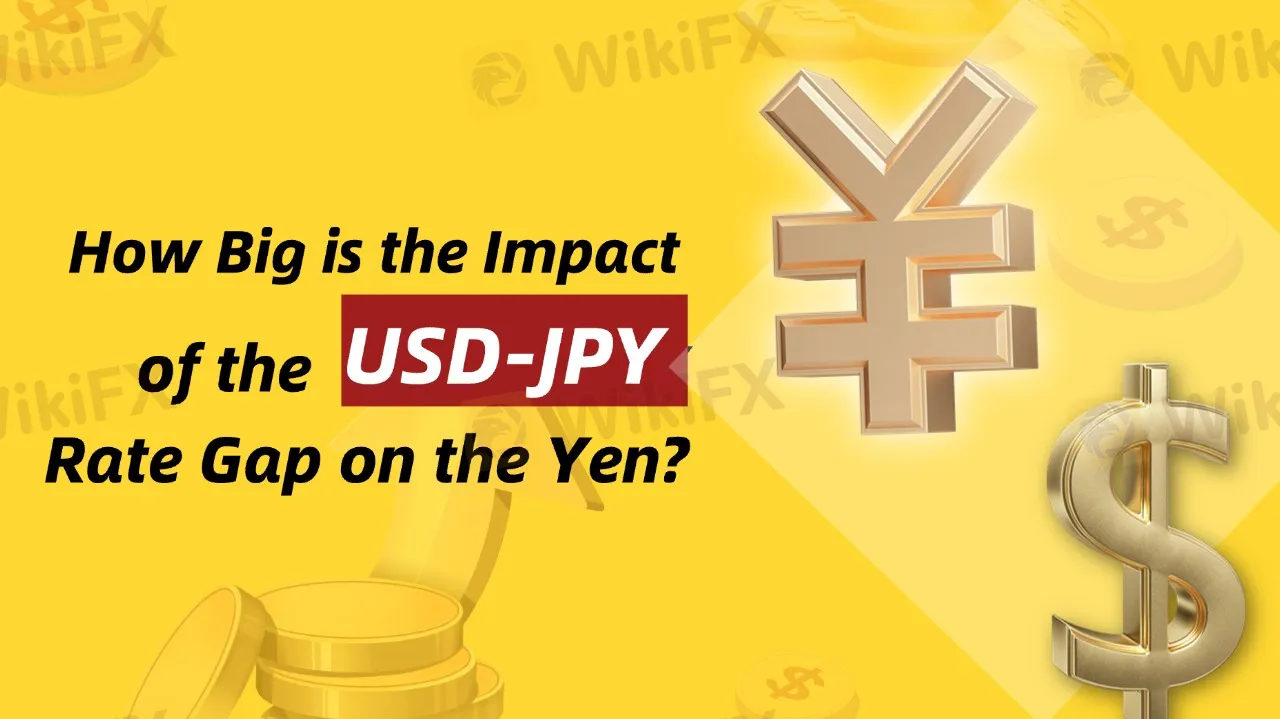简体中文
繁體中文
English
Pусский
日本語
ภาษาไทย
Tiếng Việt
Bahasa Indonesia
Español
हिन्दी
Filippiiniläinen
Français
Deutsch
Português
Türkçe
한국어
العربية
How Big is the Impact of the USD-JPY Rate Gap on the Yen?
Abstract:The U.S. Federal Reserve's repeated rate cuts and the narrowing of the U.S.-Japan interest rate differential are now in sight. So, why is the U.S.-Japan interest rate differential so important for the yen’s safe-haven appeal, especially when global economic uncertainty rises?

Simply put, when the Federal Reserve raises interest rates or the Bank of Japan maintains low (or even negative) rates, the U.S.-Japan interest rate differential widens. In such cases, investors are more likely to shift funds toward the U.S. market, where returns are higher, particularly in the bond market. This leads to capital outflows from Japan, reducing demand for the yen and driving it lower. In this scenario, the yen's safe-haven function weakens because investors tend to seek higher-return assets.
Conversely, when the U.S.-Japan interest rate differential narrows, investors may reduce demand for U.S. assets and shift back to Japanese assets or the yen.
In 2022 and 2023, the Fed's significant rate hikes caused a sharp depreciation of the yen as the U.S.-Japan interest rate gap continued to widen. This weakened the yen's safe-haven appeal, and investors preferred the U.S. dollar as a safer asset.
Looking at 2024, the Fed cut rates in the second half of the year, which should have narrowed the interest rate differential. However, due to the slow pace of rate cuts, it couldn‘t catch up with the speed of the yen’s depreciation, so the effect was limited.
In conclusion, the U.S.-Japan interest rate differential is closely linked to the yen's safe-haven properties. A widening or narrowing of the differential directly affects capital flows and the yen‘s exchange rate. Typically, when the differential widens, the yen’s safe-haven appeal weakens, and the yen depreciates. When the differential narrows, the yen‘s attraction as a safe-haven currency may strengthen, causing the yen to appreciate. Therefore, investors should closely monitor changes in the Federal Reserve and Bank of Japan's monetary policies, as well as global economic and geopolitical risks, when assessing the yen’s safe-haven status.

Disclaimer:
The views in this article only represent the author's personal views, and do not constitute investment advice on this platform. This platform does not guarantee the accuracy, completeness and timeliness of the information in the article, and will not be liable for any loss caused by the use of or reliance on the information in the article.
Read more

Why does Botbro change the domain name?
BotBro, an AI-driven forex trading platform, has recently changed its domain name to YorkerFX. This rebranding aligns with the company's strategic shift towards the "Grow Trader Matrix" initiative. The announcement was made on their official Instagram account, stating: "Following the recent update, our domain name has been changed to YorkerFX to the grow Trader Matrix."

Oanda Shines As Frop Trading Firm After Being Acquired By FTMO
FTMO enhances prop trading with the OANDA Prop Trader Community and loyalty program, integrating CRM automation and rewards post-acquisition.

Incredible! This Country's Service Sector Drives GDP to a 3-Year High!
Nigeria, one of the largest economies in Africa, is experiencing a notable economic recovery. Despite facing several challenges, particularly the fluctuations in the oil industry, Nigeria's economic growth has shown strong resilience, instilling confidence in the outlook for the future.

Mastering Calm: How to Stay Cool in Forex Trading?
In forex trading, controlling your mindset is often the most crucial trading strategy. The following tips can help you better manage your emotions and improve your chances of success in trading.
WikiFX Broker
Latest News
Decade-Long FX Scheme Unravels: Victims Lose Over RM48 Mil
The Top 5 Hidden Dangers of AI in Forex and Crypto Trading
5 Steps to Empower Investors' Trading
How to Find the Perfect Broker for Your Trading Journey?
The Most Effective Technical Indicators for Forex Trading
What Can Expert Advisors Offer and Risk in Forex Trading?
Indian National Scams Rs. 600 Crore with Fake Crypto Website
Lawmakers Push New Crypto ATM Rules to Fight Fraud
2025 WikiFX Forex Rights Protection Day Preview
PH Senator Probes Love Scams Tied to POGOs
Currency Calculator






